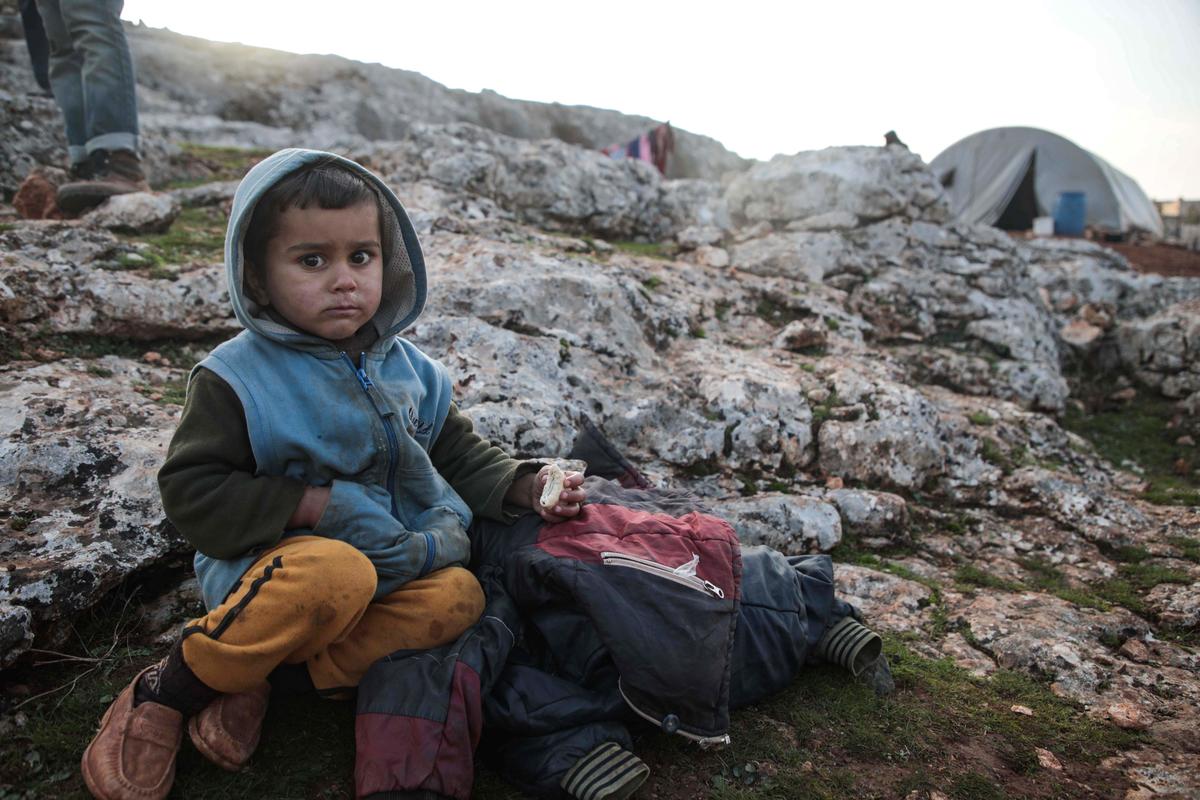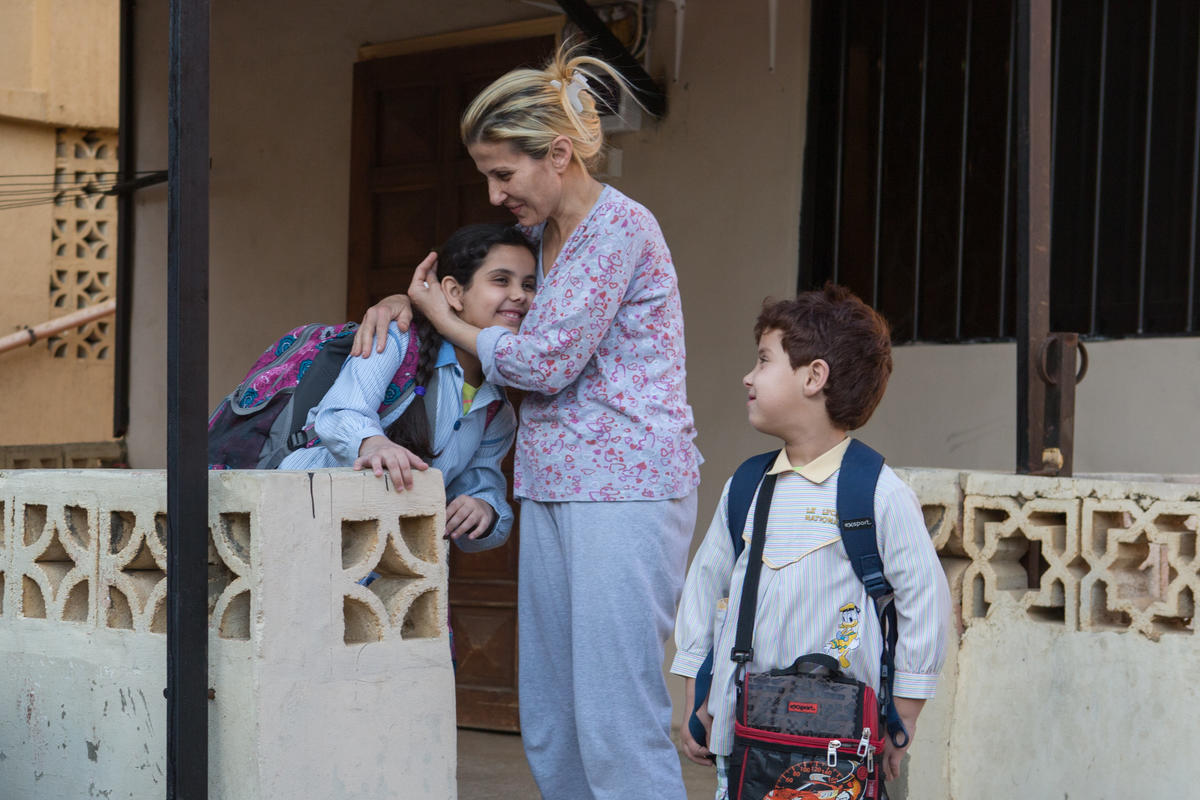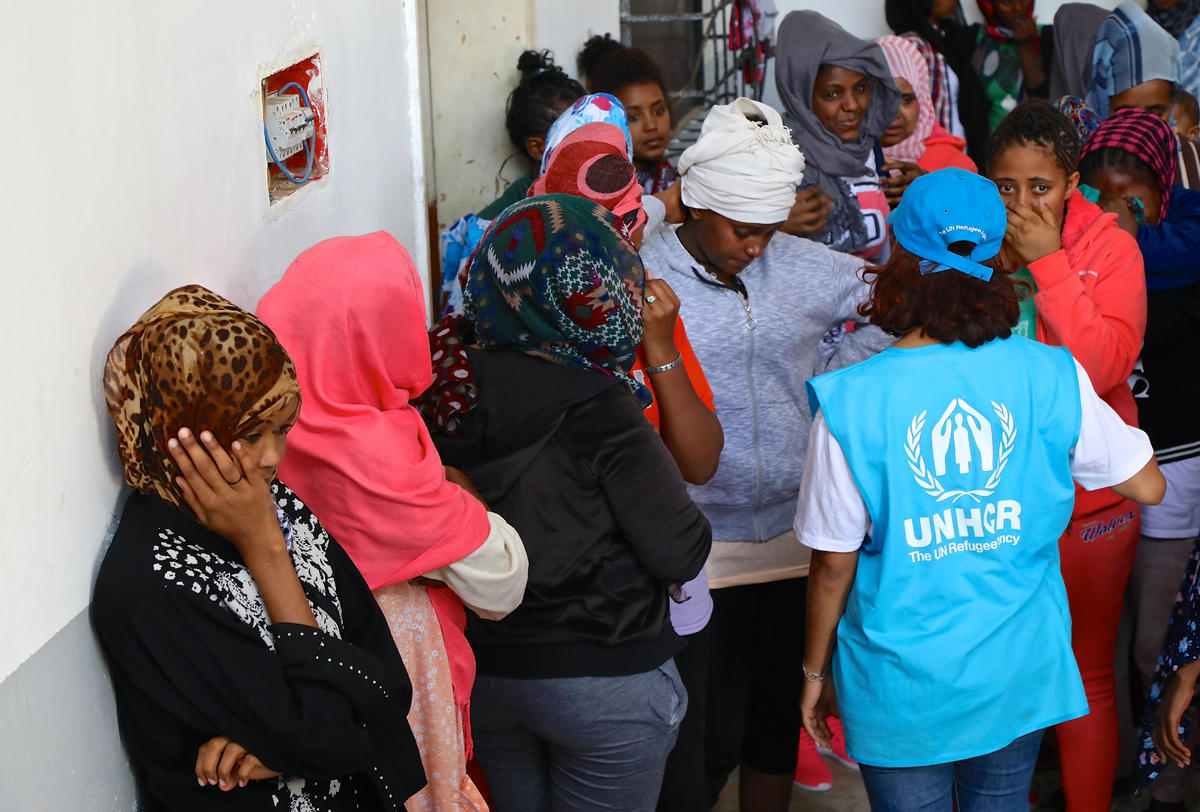Guterres thanks Chad for hospitality; calls for peace deal in Sudan
Guterres thanks Chad for hospitality; calls for peace deal in Sudan

IRIDIMI CAMP, Chad, August 25 (UNHCR) - UN High Commissioner for Refugees António Guterres today warmly thanked the people and government of Chad for their "remarkable" hospitality towards 200,000 Darfur refugees, and called for a quick peace deal that would allow those refugees to go back safely to their homes in neighbouring Sudan.
"Now that there is a peace accord for southern Sudan, there is hope for peace in Darfur also," he told schoolteachers in eastern Chad's Iridimi camp, home to 15,000 refugees, on the third day of his 10-day visit to the region.
"We believe there is a window of opportunity that is open," he said, "and the international community must work fast that this window does not close, and that peace can be gained quickly" - by the end of this year.
He said it is time to refocus world attention on Sudan, a country that is "a bit forgotten" as other world crises attract attention. "We send an appeal to the international community to help create peace in Sudan, and to invest in creating conditions that are necessary to help Sudanese return to their homes once peace is established," he added in a meeting with refugees and local people.
After visiting camps for displaced people in Darfur and the south in both Darfur and Khartoum earlier on his trip, he said he was impressed with Iridimi, because of its spaciousness and its health centre and schools, which he visited. He added that the fact that people are living in tents spaced far apart and not existing in cramped conditions is due to the generosity of the local people and authorities in giving over large tracts of land for UNHCR's 12 camps in eastern Chad.
Guterres met Darfur refugees and Chadians from a nearby village who banded together in the last two weeks to create a committee to avoid friction between their groups. They took this course after an incident was averted on August 1. Provoked by false rumours, refugee women in Iridimi had taken up clubs and prepared to march on Erre village, but were talked out of it.
"Of course I welcome this initiative that promotes tolerance, dialogue and understanding between the communities," Guterres told them. "I would like it if this mixed committee between Chadians and Sudanese could be the symbol of dialogue and understanding and tolerance between all the people in the nations of the region."
In his meetings with Chadian and Sudanese officials on this trip, the High Commissioner has stressed that Sudan now has an opportunity to be a factor for peace and economic development in Africa, rather than the world's worst case of displacement as it now is.
The members of the committee presented Guterres with several lists of their needs, ranging from the geopolitical to the down-to-earth. They called for resumption of the stalled Abuja peace talks on Darfur, for those who committed war crimes in Darfur to face international justice, for an end to rapes in Darfur, and also for more mosquito nets and for milling machines for the cereal distributed in Iridimi camp.

Guterres, a former Portuguese prime minister who just became High Commissioner in June, joked that in 30 years in politics, "I have rarely encountered such a clear political programme as the one you have presented."
On Friday, he goes to the Chadian capital, N'Djamena, where he is expected to repeat his appreciation of Chadian hospitality and to call for more international financial support for Chad, itself one of the poorest countries in the world.
By Kitty McKinsey in Abéché, Chad









